Red and Burning Eyes After Rain Exposure – Hidden Dangers You Shouldn’t Ignore
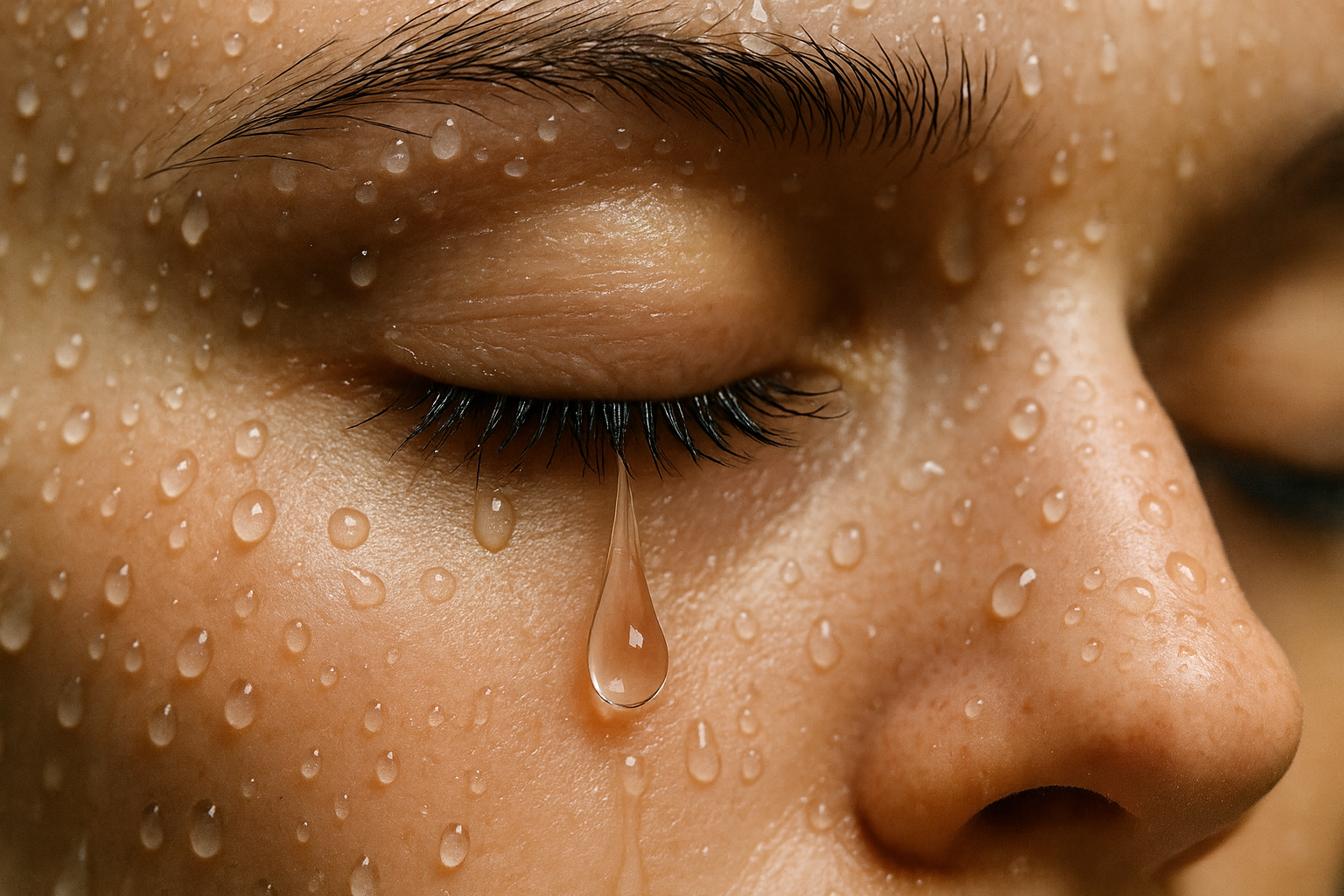
Red and burning eyes after rain – a warning sign you shouldn’t ignore.
When rainwater splashes into your eyes, most people tend to wipe it off and move on, assuming it’s harmless. However, rainwater is far from pure. It contains fine dust, bacteria, fungi, and even chemical pollutants that accumulate from the atmosphere. As this contaminated water comes into direct contact with the cornea – the transparent front surface of the eye – it can lead to irritation, redness, and sometimes serious infections if left untreated.
Prolonged exposure to polluted rainwater can cause several eye diseases that affect both comfort and vision clarity, including:
- Conjunctivitis (pink eye): The most common after-effect of rainwater exposure. Symptoms include red and burning eyes, itching, tearing, and sticky yellow discharge. It is highly contagious and can spread easily through towels or hands.
- Keratitis: This occurs when bacteria or viruses penetrate deeper into the cornea. It causes sharp eye pain, sensitivity to light, and blurry vision. If not treated promptly, it can result in permanent corneal scarring.
- Eye infection: Pathogens in rainwater can inflame the eyelids and conjunctiva, leading to swelling, a gritty sensation, and severe discomfort.
- Corneal ulcer: One of the most dangerous complications, which can cause irreversible vision loss if the corneal tissue becomes severely infected or perforated.
Children, contact lens wearers, people with allergies, and those with a weak immune system are particularly vulnerable. Even a few drops of rainwater can irritate sensitive eyes and make them red, watery, and painful.
What to Do When Rainwater Gets in Your Eyes: 5 Safe Steps at Home
It’s essential to act quickly and properly after your eyes are exposed to rainwater. Follow these five steps to reduce the risk of infection and soothe irritation:
Step 1: Wash your hands thoroughly
Always start by washing your hands with antibacterial soap and water. Touching your eyes with dirty hands can introduce more bacteria and make the inflammation worse. Avoid touching or rubbing your eyes during the cleaning process.
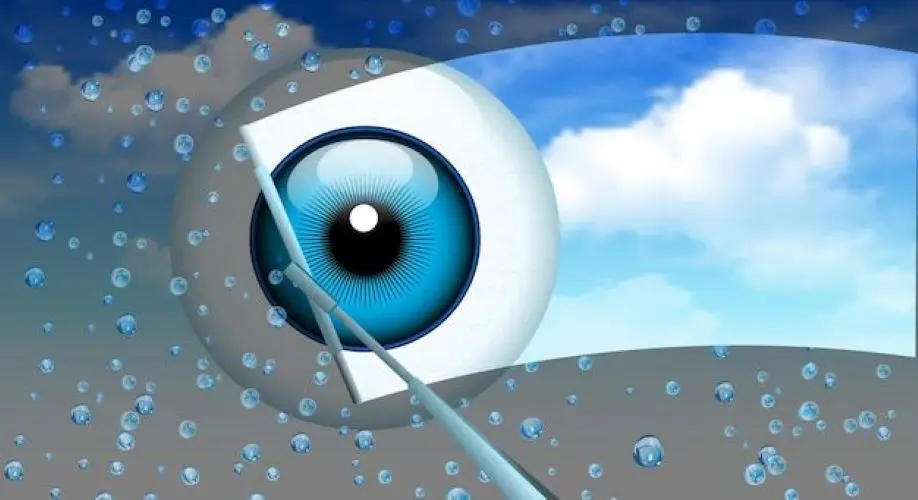
Protect your eyes from rainwater to prevent red and burning eyes.
Step 2: Rinse your eyes with sterile saline solution (0.9%)
Use a sterile saline solution to flush your eyes immediately. This helps wash away pollutants, bacteria, and chemical residues from rainwater. Avoid using tap water as it may contain chlorine or microorganisms that worsen irritation. If you wear contact lenses, remove them before rinsing. Always use your own saline bottle—never share it with others to prevent cross-infection.
Step 3: Avoid rubbing or touching your eyes
Even though it’s tempting to rub your eyes when they feel itchy or burning, don’t. Rubbing can scratch the cornea and worsen the irritation. It can also push bacteria deeper into the tissues, leading to infection or corneal damage.
Step 4: Rest your eyes and avoid polluted environments
After cleaning, give your eyes time to recover. Stay indoors and avoid smoke, wind, and dust. Refrain from using digital devices for long hours to prevent additional strain. If you must go outside, wear sunglasses or protective glasses to shield your eyes from airborne particles and bright sunlight.
Step 5: Monitor symptoms for 24–48 hours
Pay attention to how your eyes feel over the next two days. If redness, pain, discharge, or blurred vision persists, don’t delay seeking professional help. Persistent symptoms may indicate keratitis or a bacterial infection that requires prescription medication.
Timely care can make all the difference. Visit a trusted eye hospital or ophthalmology clinic for proper diagnosis and treatment. Early intervention prevents scarring and ensures long-term visual health.
Never Self-Medicate with Random Eye Drops
A frequent mistake many people make is using leftover or over-the-counter eye drops without consulting a doctor. Some of these contain antibiotics or corticosteroids, which can be harmful when misused.
- Using the wrong eye drops may aggravate infections instead of curing them.
- Prolonged use of steroid-based drops can thin the cornea, leading to ulcers and potential blindness.
- Unsupervised medication can permanently damage delicate corneal cells.
To protect your eyes, only use medications prescribed by an eye care professional after a thorough examination. Never rely on advice from pharmacies or social media recommendations.
Smart Habits to Prevent Red and Burning Eyes During the Rainy Season
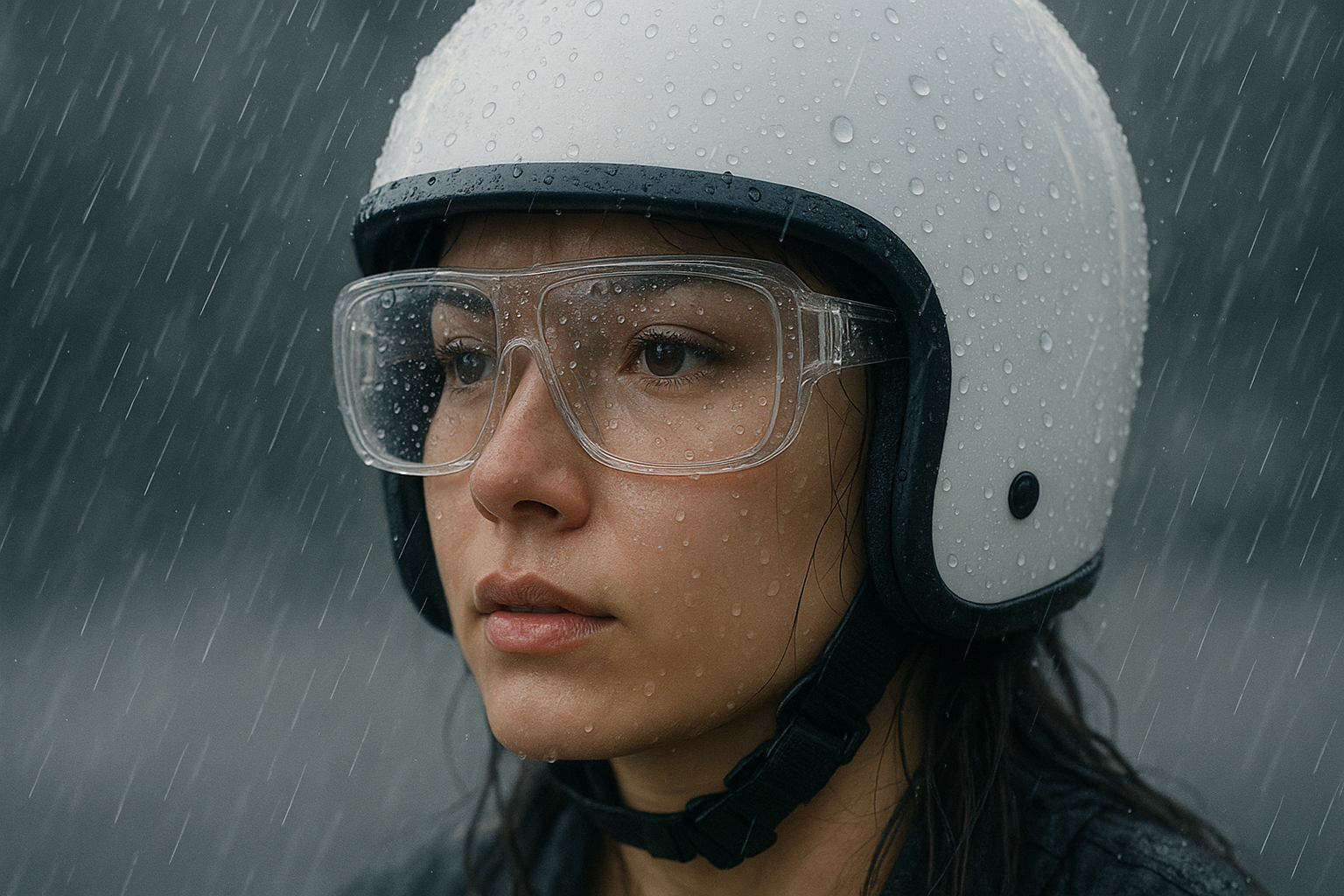
Wearing protective glasses in the rain helps prevent red and burning eyes.
Keeping your eyes healthy during the rainy months doesn’t require much effort—just consistent care and awareness. Here are some helpful tips from eye specialists:
- Always carry a small bottle of saline solution or artificial tears when traveling, so you can rinse your eyes after exposure to rain.
- Wear wide-lens protective glasses or transparent visors when riding motorbikes in the rain to prevent water splashes.
- Encourage children to wear hats with brims to reduce rain exposure on their face and eyes.
- If you have a history of eye surgery, keratitis, or regularly wear contact lenses, take extra care to keep your eyes dry and clean.
- Avoid touching your face and eyes with unwashed hands, especially after being outdoors.
- Get regular eye check-ups at least once a year, particularly if you experience frequent redness or irritation.
A strong immune system and a balanced diet rich in vitamin A, omega-3, and antioxidants also play an important role in maintaining healthy eyes. Include foods like carrots, salmon, spinach, and citrus fruits in your meals for optimal eye protection.
Don’t Let a Drop of Rain Ruin Your Vision
Your eyes are among the most delicate and sensitive parts of your body. Something as simple as rainwater—especially in polluted urban areas—can become a silent threat if you underestimate it. While minor irritation may fade on its own, untreated infections can progress quickly and cause lasting damage.
Remember: if you experience red, burning, or painful eyes after rain exposure, don’t wait for symptoms to worsen. Clean your eyes properly, avoid self-medication, and seek professional help early. Proper eye care not only protects your sight but also ensures long-term comfort and clarity in every season.
Taking small precautions today can save your vision tomorrow. Protect your eyes, stay cautious during the rainy season, and enjoy the world with healthy, clear vision every day.

 vi
vi 09-Oct-2025
09-Oct-2025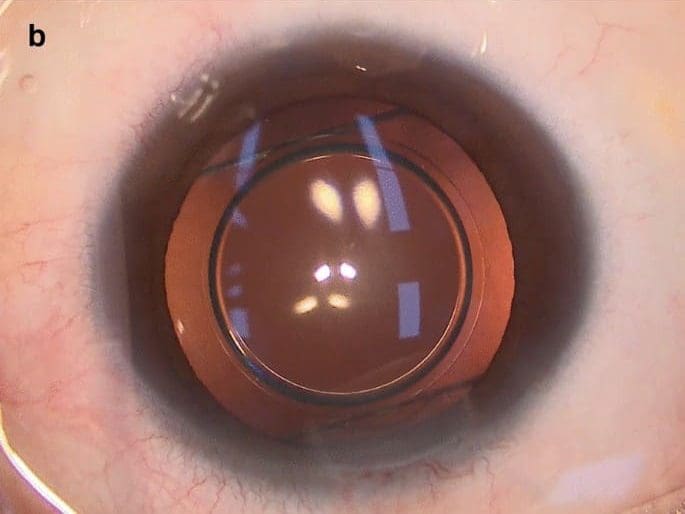


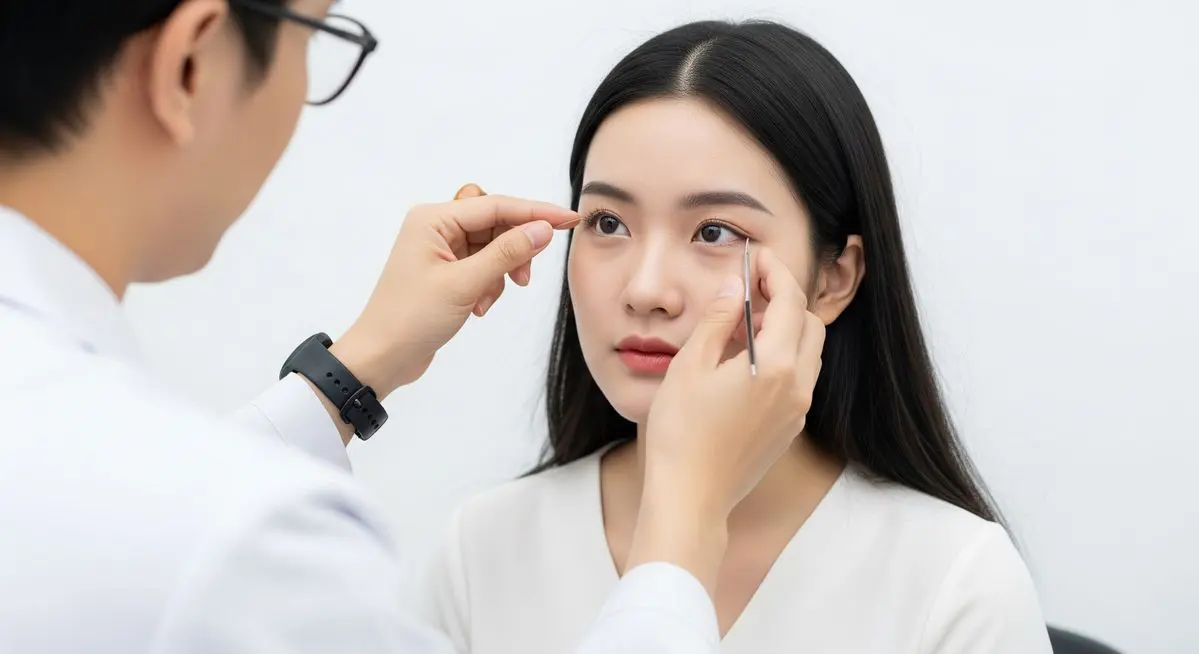
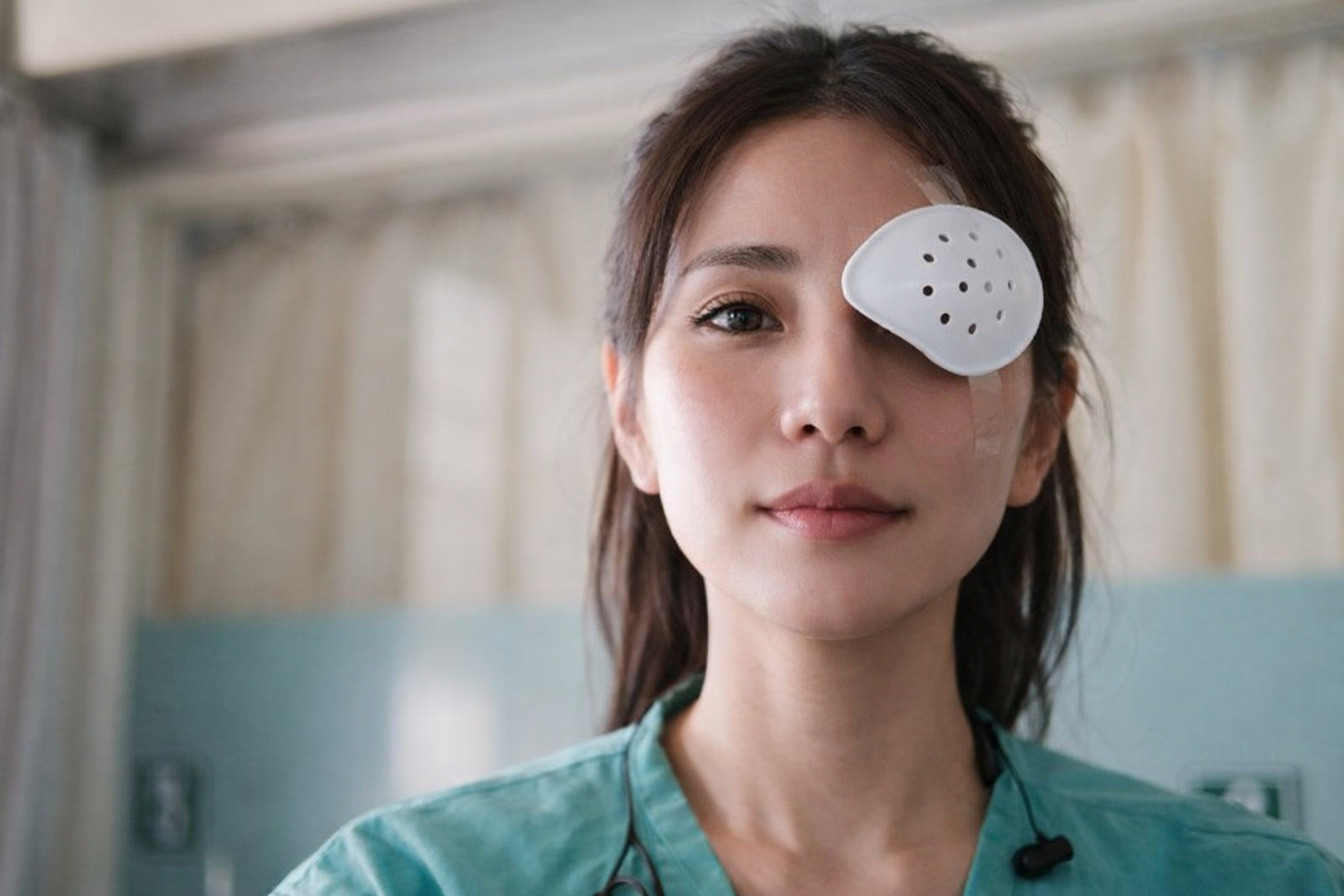









 0916.741.763
0916.741.763 Appointment
Appointment